|
|
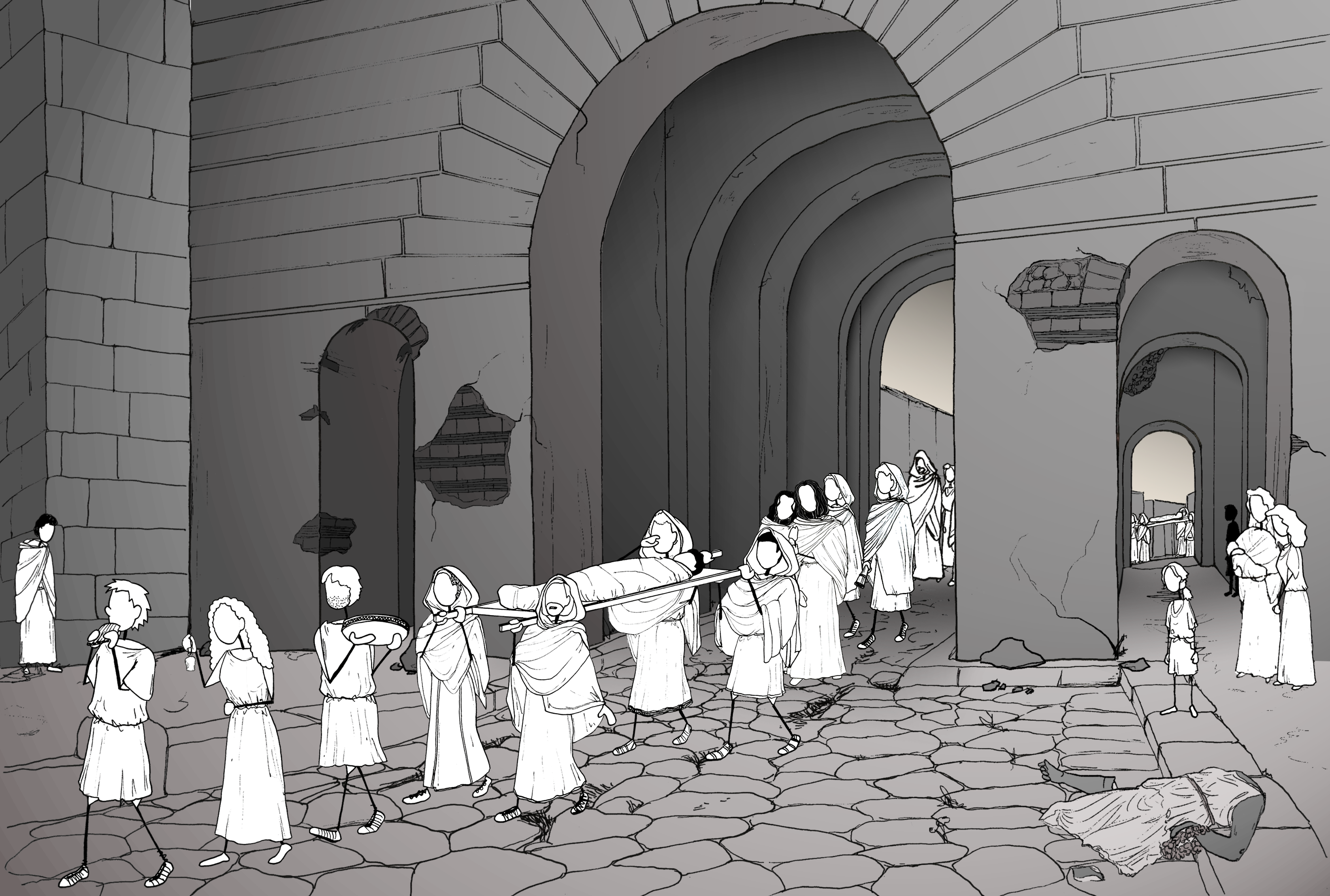
Superbus is dead: crushed by the collapsing roof of his bed- room. Three days after the earthquake, Pompeia still cannot cry for her son. Scratching her cheeks and tugging her hair did not bring the release of weeping. Screaming to the gods did not help either. Even when she and Fabia washed her son’s broken body, put a coin in his mouth and tied his jaw shut with a ribbon, no tears came. Pompeia’s grief is too great. Her heart feels like a desert with no moisture, only the blazing sun of pain. In that place of anguish, Amarantus came to her rescue. He is the one who asked Mestrius to help them perfume the body. Following the earthquake, undertakers were in such high demand that many had doubled or tripled their prices. Mestrius did it for free, anointing her son’s body with frankincense, myrrh, lavender ... and his tears. Amarantus took care of many other things. He organised builders to come and take away the rubble from Superbus’s room and his room, which also suffered a collapsed ceiling. He employed his friend Papilio to plaster over the cracked walls and paint new frescoes. It was his idea to invite Axiochus to give the eulogy. |
|
|
It was Pompeia’s idea to hold the funeral at night, in the ancient way, because the graveyard will be less crowded. There have been dozens of funerals every day since the earthquake. Now it is dusk of the chosen day and the procession has just set off down Arena Street towards the family tomb in the necropolis outside the Herculaneum Gate. Pompeia shivers as she hears the mournful sound of Amarantus’s pan pipes. He is leading the way, followed by Grata shaking a bell to ward off evil spirits and Scumnicolus beating a tambourine. Amarantus got their neighbours Mestrius, Vatia and Papilio to act as pallbearers along with Axiochus. Pompeia and Fabia fall into step behind the bier, walking arm in arm, both in black and with their unpinned hair falling loosely about their shoulders. Behind them come various neighbours and patrons of the bar, about thirty people in all, almost half of them women. Pompeia is secretly relieved to see that her next-door neighbour Valeria Volusa is not there. She lost all four of her children in the quake. There is a rumour that she commissioned fountain sculptures of each of them, shown as cupids riding dolphins to the next life. Their cortège comes into the forum just ahead of another one, that of a child, or perhaps a dwarf. This poor little corpse is accompanied by a man playing double pipes and several women ululating their grief. The music does not clash but blends together even as a third procession takes up the rear. Still Pompeia’s tears do not come. Once through the town gate they turn right, letting the other processions pass by. A shroud of smoke hangs over the graveyard; there have been hundreds of cremations these past days. In the gathering gloom, Pompeia sees Coquus standing between their family tomb and a freshly built pyre. He has been guarding the pyre since he and Scumni built it earlier that day – the wood cost a fortune – and now he stands ready with a flaming torch. The mule standing patiently on the other side of the pyre is one rescued by Amarantus after the earthquake. He helped carry the wood and now bears panniers full of cured ham, sweet olives and bread for the midnight funeral feast. Reverently, the pallbearers place the bier on the top of the pyre. Due to the shortage of wood it is only as high as Pompeia’s waist. Coquus takes up position at the head of the pyre so that his torch helps illuminate the body. Under a darkening sky, Axiochus steps forward to give the eulogy. Sometimes he can be pompous but tonight he is dignified, speaking with a clear voice and appropriate gestures. He dutifully names Superbus’s ancestors, mentions his modest achievements, and finishes by quoting Virgil, ‘If you had lived you might have been another Marcellus.’ Pompeia is moved, but not to tears. Then Amarantus does something unusual. ‘Look!’ he says. ‘I have some myrtle. Everyone can take a branch and lay it on his body and say one thing they most loved about Superbus. Who wants to go first?’ Mestrius moves out of the purple gloom and into the torchlight. ‘I loved him like a brother,’ he says, placing a sprig of myrtle on his friend’s chest. ‘He was the sun in my sky.’ Papilio comes next. ‘He made me laugh,’ says the painter. ‘And he always filled my cup to the brim.’ ‘He was the best-looking man I have ever met.’ Vatia glances in Fabia’s direction. ‘As handsome as his sister is beautiful.’ Fabia does not seem to notice this inappropriate compliment. She goes forward to put a sprig of myrtle on Superbus’s chest. ‘He was my big brother,’ she says simply, ‘and I will remember him fondly every day of my life.’ At last Pompeia goes forward and puts her branch on his swaddled body. ‘With my son dies half a dozen grandchildren he might have given me, a dozen great grandchildren and hundreds of other offspring. I will miss them, but most of all, I will miss my little boy.’ As she steps back, a small figure pushes through the crowd of mourners and snatches a sprig of myrtle from Amarantus. Sophe the beggar girl places her branch on the body. ‘Once I asked him for a quadrans,’ she glares around at them fiercely, ‘and he gave me two!’ Then she disappears into the twilight. She too, is crying. As dusk turns to night, other friends and patrons come forward to say a word or two in honour of Superbus. They commend his generosity and cheerful spirit. Last of all is Amarantus. His wet cheeks glisten in the torchlight as he places the remaining sprigs of myrtle on the corpse. ‘He was like a little brother to me. One of my earliest memories was watching his mother wrap him in linen swaddling bands. She did it to protect her baby boy in this world. Now, twenty-five years later, she swaddled him again to prepare him for a new journey. O gods of the underworld, have mercy on him. Send a guide to take him to the land of light, to the fields of Elysium. And when his soul is reborn into another body, help us to recognise it as his.’ |
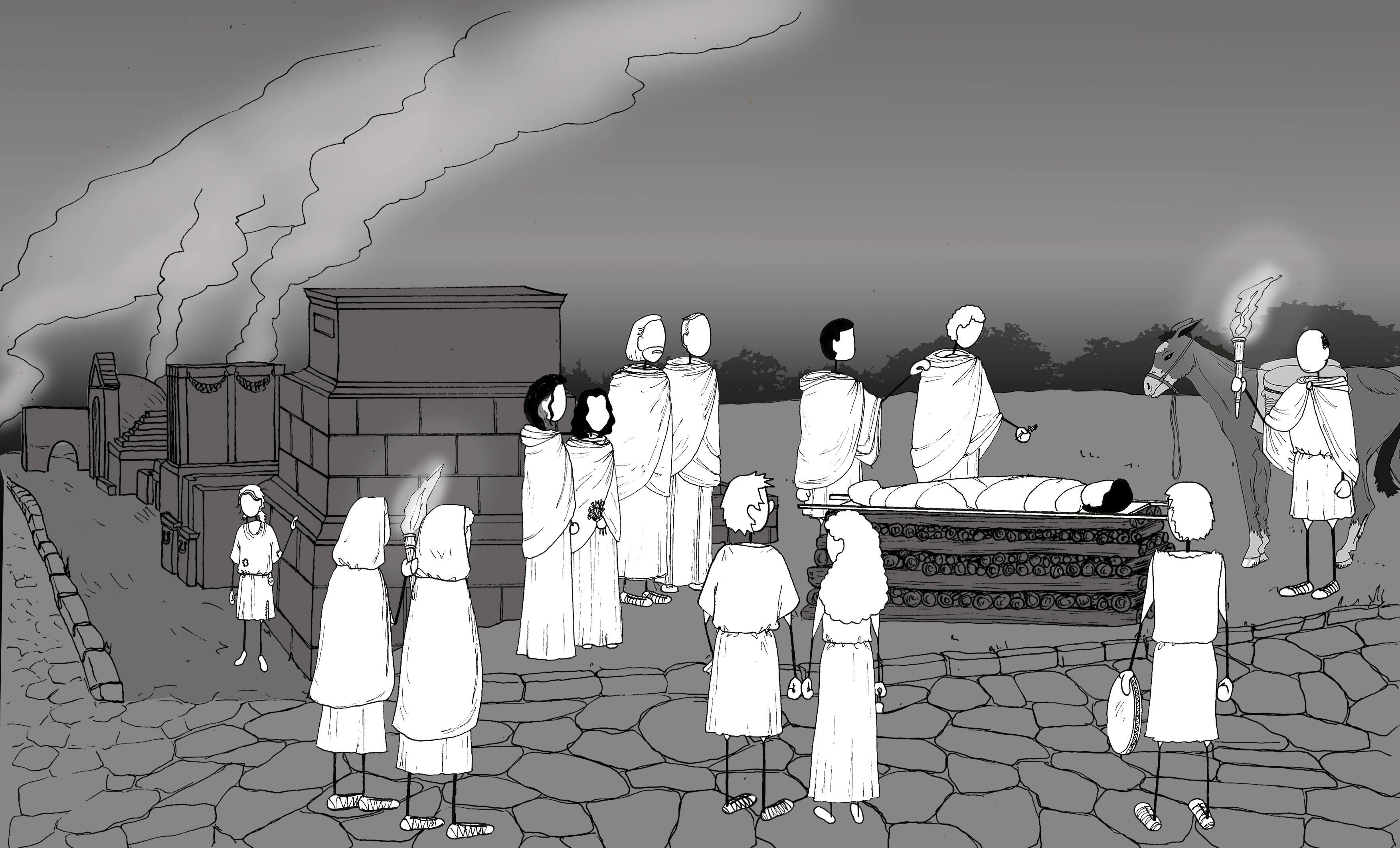 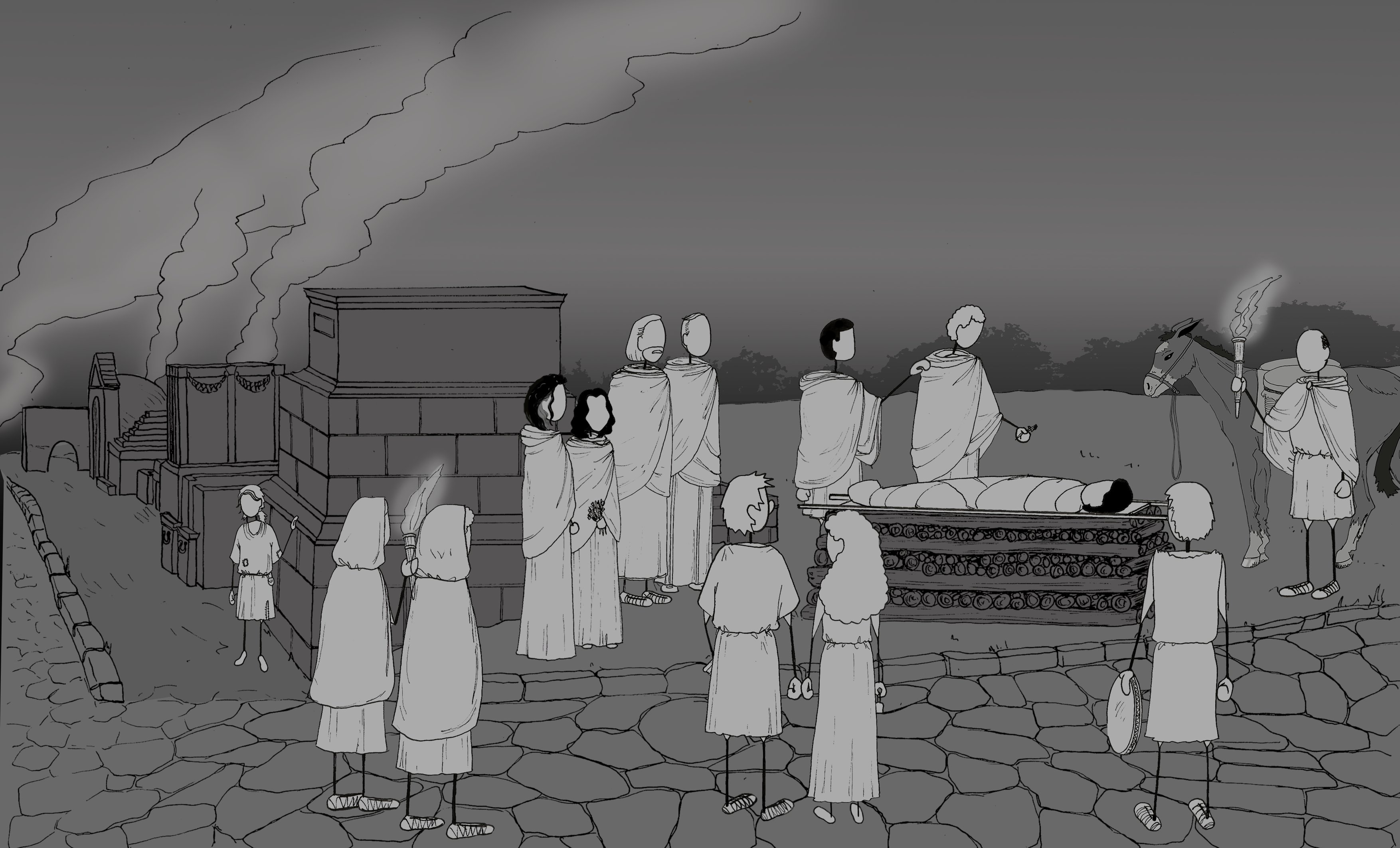 |
He takes the flaming torch from Coquus and offers it to Pompeia. Turning her face away as custom dictates, Pompeia touches it to the base of the pine logs. The flames are shy at first, for the wood is damp. Then they begin to take hold and everyone moves back. Soon the pyre is burning fiercely. Roaring flames illuminate the tomb and the mule and the faces of Pompeia’s surviving friends and family. Its heat is like a blessing, warming them on this cold February night. Now she can smell pine mixed with myrtle and cypress and something deeper and richer, the heady smell of frankincense. Accompanied by Amarantus on his pan pipes, Grata begins to sing one Superbus’s favourite songs: a slow, sad one. The slave-girl’s pure voice seems to pierce something in Pompeia’s heart. |
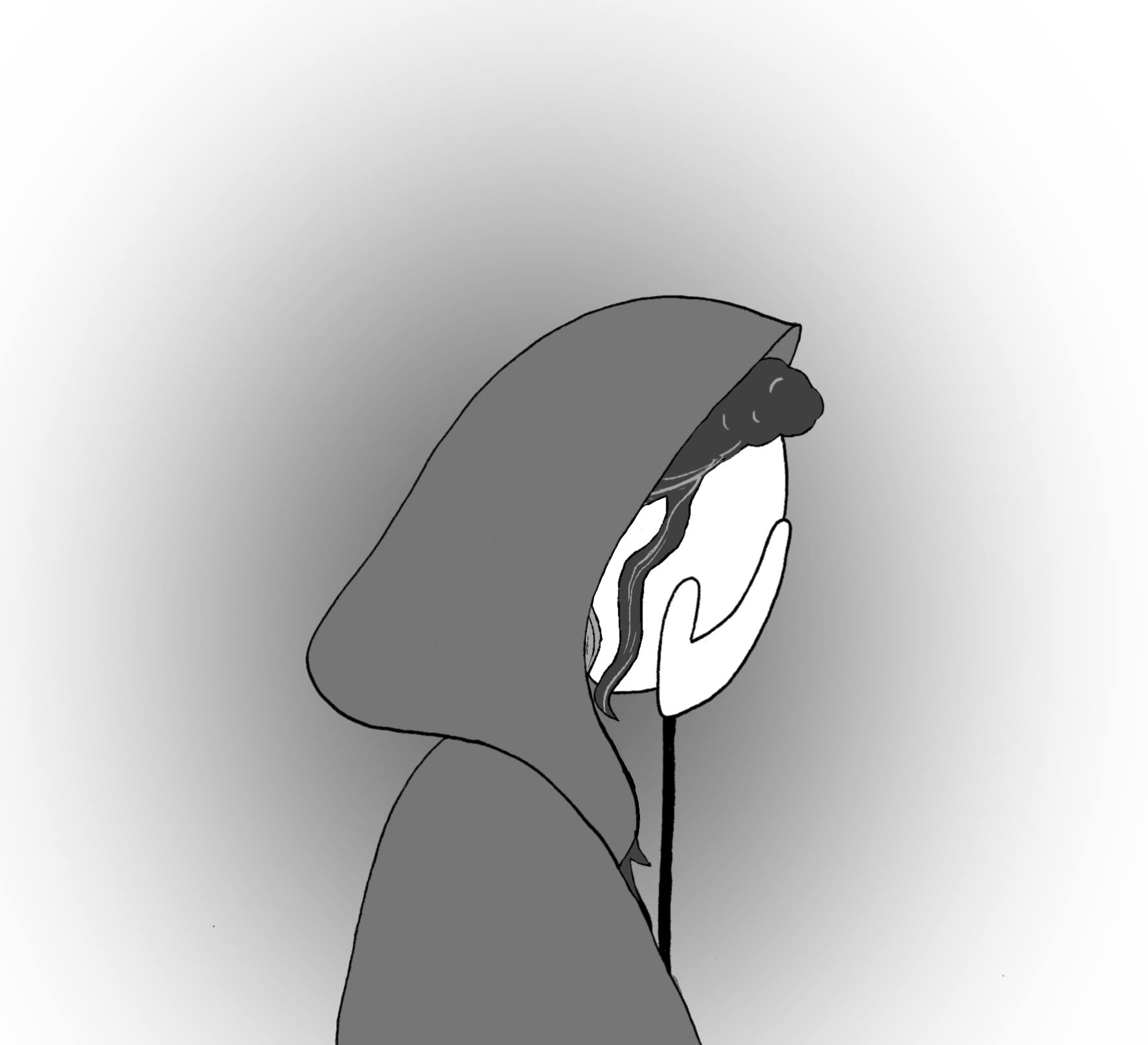 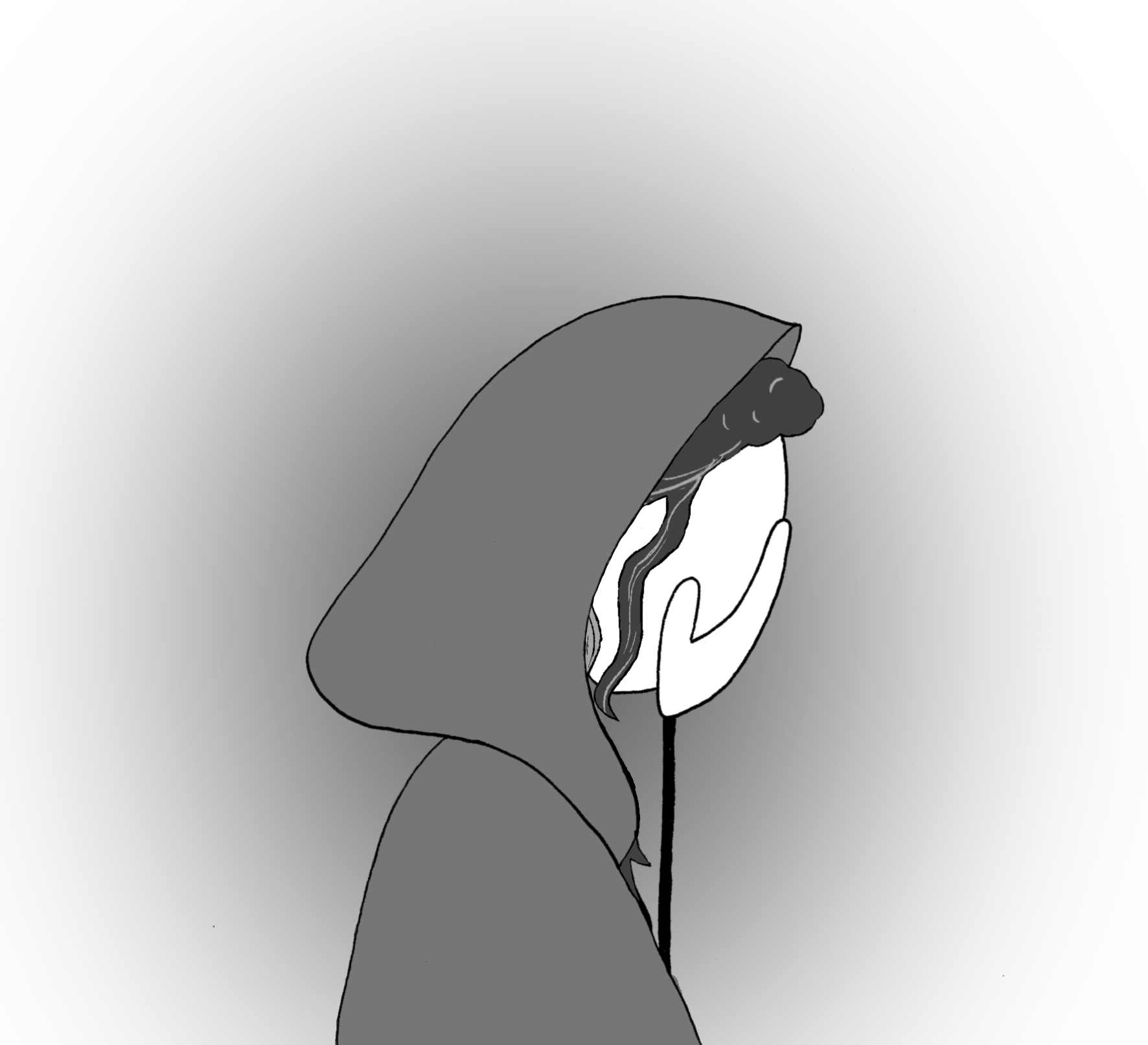 |
Finally, her tears come. Pompeia weeps as her son’s flesh becomes orange smoke and golden sparks flying up to the black sky. She weeps as mourners gradually drift away until only the closest friends and family remain. At last her tears are finished. She feels hollow and clean. And hungry. She nods at Amarantus, who spreads rush mats and bedspreads on the ground while Coquus, Grata and Scumnicolus fetch the food from the mule’s panniers. Pompeia and Fabia recline close together on one edge of a bedspread with Mestrius and Papilio on their right, Vatia and Axiochus on their left. Coquus and Grata lay out the best food they could find after a week of disruption: slices of cured ham and bowls of olives soaked in grape syrup. Scumnicolus hands out loaves of bread as flat and hard as the bread Aeneas ate when he first landed in Italia. Amarantus pours the wine. After serving them, the slaves retreat into the shadows, as is only proper, but Pompeia invites them to sit on the bedspread and eat, too, as if it were the Saturnalia. They all eat together, watching the flames of the pyre and telling each other stories of Superbus until late into the night. By the time dawn begins to lighten the sky to the east, her son’s bones and ashes are cool enough to be washed with watered wine. Pompeia does it herself, then puts the remains in an urn of pale green glass. Finally, she places the urn in the tomb next to those of her father. When she emerges, she sees Amarantus stifling a huge yawn. ‘Dear Amarantus,’ she says. ‘Over this past week you have shown exceptional loyalty and devotion. After the days of purifi- cation, I am going to grant you your freedom. I want you to manage Superbus’s beloved bar and make it a place of refuge, joy and profitability. Will you do that, as a tribute to him?’ Her faithful slave bows his head. ‘Mistress,’ he says, ‘I would like nothing better in all the world.’ |

